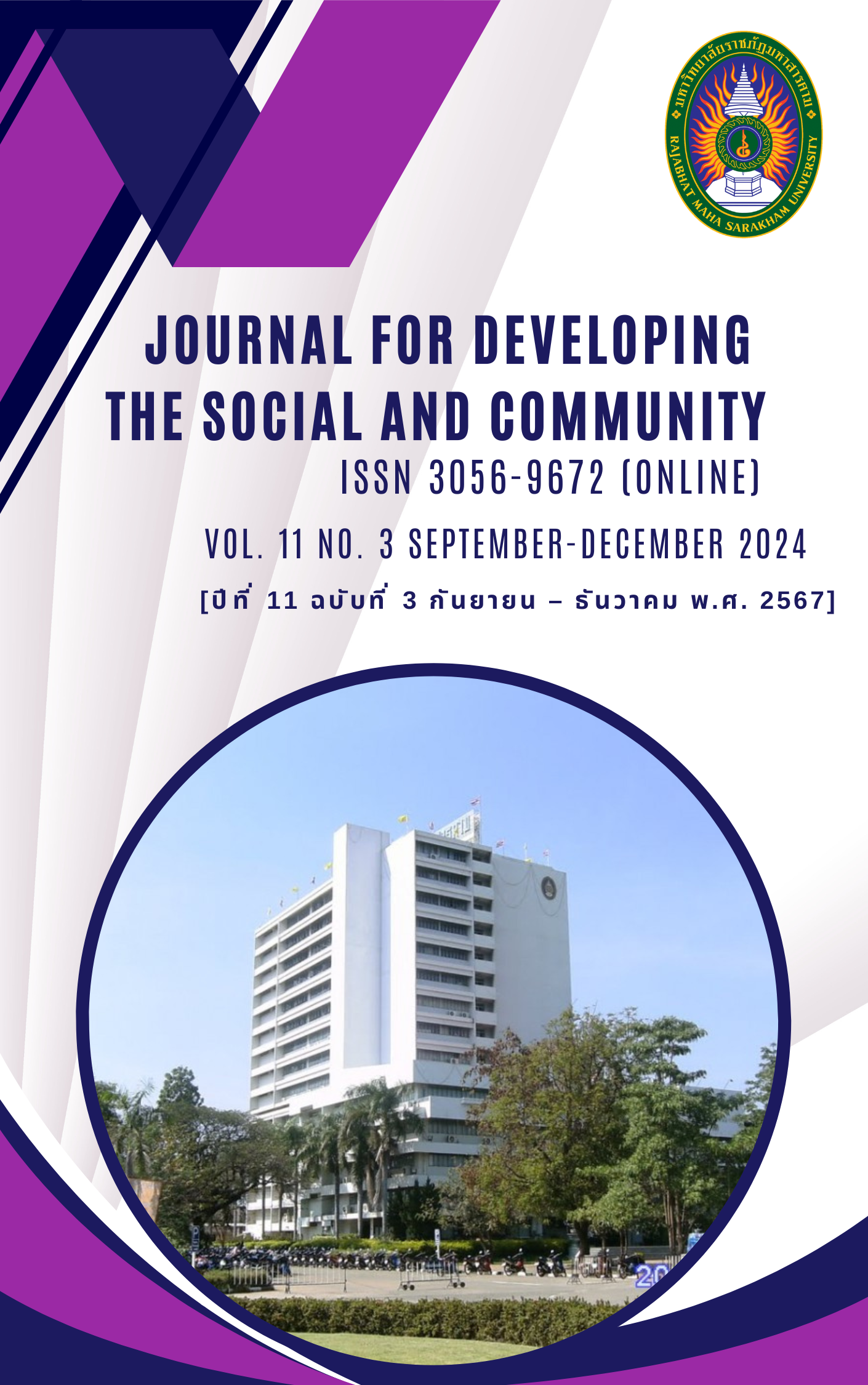The Development of Critical Reading Ability in Matthayomsuksa 6 with QUEST’s Question Method and Gamification Technique
Keywords:
Critical Reading, QUEST, GamificationAbstract
The purposes of this study were: 1) to compare the critical reading ability of Matthayomsuksa 6 students before and after using QUEST’s question method with gamification technique. 2) To examine the satisfaction of Matthayomsuksa 6 students towards the QUEST’s question method with gamification technique. The participants in this study were 30 Matthamyomsuksa 6 room 1 students at Wang Klai Kangwon School under Royal Patronage collected by cluster random sampling based on classes. This study was conducted in 8 lessons. The instruments in this study were: 1) critical reading organized by QUEST’s question method with gamification technique lesson plans. 2) Critical reading test. 3) The satisfaction survey of Matthayomsuksa 6 students towards QUEST’s question method with gamification technique. The statistics used in this study were: Mean (M), standard deviation (S.D.), and t-test dependent.
The study found that
1) The critical reading ability of Matthayomsuksa 6 students after studying by QUEST’s question method with gamification technique was higher than before with statistical significance at .05 level.
2) The satisfaction of Matthayomsuksa 6 students towards QUEST’s question method with gamification technique was at the highest level.
References
Adler, M & Adler, C. (1972). How To Read A Book. New York: MJF Books.
Barkhuizen, G. (2002). The Quest for an Approach to Guide Critical Reading and Writing. A Journal of Australian TESOL, 17(3), 19-28.
Byrnes, H. (1998). Reading in the Beginning and Intermediate College Foreign Language Class. United States: Center for International Education.
Chamsap, T. (2023). Issues with analytical reading. (Interview). Teacher, Wang Klaikangwol School under Royal Patronage. 18 February 2023.
Chotirat, K. (2023). Issues with analytical reading. (Interview). Teacher, Wang Klaikangwol School under Royal Patronage. 18 February 2023.
Iamboonyarit, P & Cholthicha, P. (2020). Teaching Analytical Reading through Active Learning to Develop Critical Thinking Skills of Thai Gen Z Students. Journal of Education. Burapha University, 31(1), 1-11.
Jongmuenwai, B. (2018). Gamification for Learning. Journal of Computer Science and Information Technology Projects Rajabhat Maha Sarakham University, 4(2), 37-43.
Kapp, K. (2013). The gamification of learning and instruction field book: Ideas into practice. U.S. state of New Jersey: John Wiley & Sons Inc.
Khueanrob, R. (2023). Issues with analytical reading. (Interview). Teacher, Wang Klaikangwol School under Royal Patronage. 18 February 2023.
Maslow, A. H. (1943). A theory of human motivation. Psychological Review, 50(4), 370–396.
Office of Academic Affairs and Educational Standards, Office of the Basic Education Commission, Ministry of Education. (2008). Indicators of Core Learning Standards in Thai Language Learning Area according to the 2008 National Curriculum for Basic Education. Bangkok: Agricultural Cooperatives of Thailand.
Office of the Education Council Secretariat. (2022). Report on the Study of Learning Loss in Basic Education during the COVID-19 Situation: Situation, Lessons, and Approaches to Improving Learning Quality. [E-book].
Phanthabut, S. (2017). Living as a Contemporary Person in the Digital Age. Academic Journal of Social Communication Innovation, Srinakharinwirot University, 5,2, 161-167.
Phornkul, C. (2014). Teaching Thinking Processes. Bangkok: Chulalongkorn University.
Rasure, E. (2021). Gamification: What It Is, How It Works, Risks. Retrieved on August 20, 2023, from https://www.investopedia.com/terms/g/gamification.asp.
Schon, D. (1987). Educating the Reflective Practitioner. San Francisco, CA: Jossey-Bass.
Sethapong, T. (2016). The Development of a Teaching Model Based on the Concept of Reading from Models and Semantic Mapping Strategies to Enhance Analytical Reading Ability of Higher Education Students. doctor's thesis: Chulalongkorn University.
Vygotsky, L.S. (1978). Mind in society: The development of higher psychological processes. Massachusetts: Harvard University Press.
Wiriyawechku, C. (2015). Teaching Techniques for Teachers. Bangkok: Chulalongkorn University Press.
Wongkitrungrueng, W. (2018). Digital Citizenship Handbook. Bangkok: Digital Economy Promotion Agency, Ministry of Digital Economy and Society.
Özensoy, A.U. (2021). The Effect of Critical Reading Skills on Academic Success in Social Studies. Eurasian Journal of Educational Research, 93, 319-337.
Downloads
Published
How to Cite
Issue
Section
License
Copyright (c) 2024 Journal for Developing the Social and Community

This work is licensed under a Creative Commons Attribution-NonCommercial-NoDerivatives 4.0 International License.
Articles that are published are copyrighted by the authors of the articles







